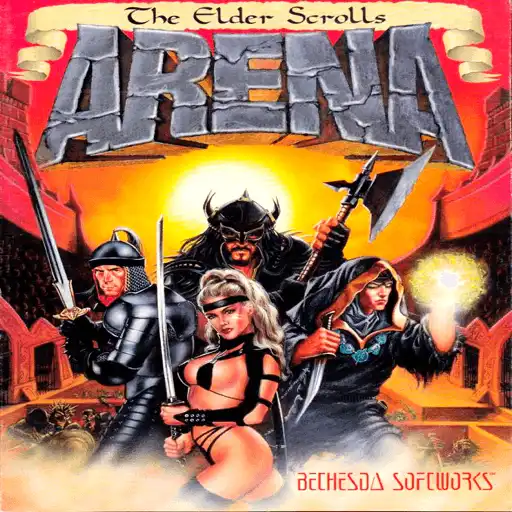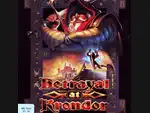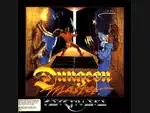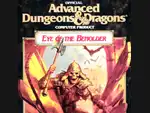
Elder Scrolls Strategy Games: A Comprehensive Guide to the Best Titles in the Genre
The Elder Scrolls series is not only known for its sprawling RPG adventures, but it also offers exciting strategy games that capture the rich lore of its universe. Players can immerse themselves in strategic gameplay that challenges their decision-making skills while exploring the vast world of Nirn.
These games highlight the series’ ability to blend unique mechanics with deep storytelling.
From the origins of the series to modern adaptations, Elder Scrolls strategy games create an engaging experience for fans. They allow players to control armies, manage resources, and outsmart opponents using the diverse range of factions found within the Elder Scrolls realm.
This blend of strategy and immersion sets these games apart in the genre.
By examining the evolution and impact of Elder Scrolls strategy titles, one can appreciate their role in shaping the gaming landscape. Whether enjoyed solo or with friends, these games provide an intricate balance of tactical gameplay and narrative depth that keeps players coming back for more.
Key Takeaways
- Elder Scrolls strategy games offer a unique blend of tactical gameplay and rich storytelling.
- The series has evolved, introducing various mechanics that enhance player engagement.
- These games continue to influence the strategy genre and inspire new titles.
Origins of Elder Scrolls Strategy Games
The origins of Elder Scrolls strategy games trace back to the early development of the series. Key titles and influences shaped the transition from role-playing elements to strategy gameplay, paving the way for future titles in the genre.
Inception and Development
The Elder Scrolls franchise began with Elder Scrolls: Arena, released in 1994. It served as a groundbreaking open-world RPG, but its design also laid groundwork for strategy elements.
Players explored vast lands and engaged in battles that required strategic planning and resource management.
The development team focused on creating immersive worlds where players had the freedom to make choices. They aimed to blend RPG mechanics with strategy, allowing for a different type of gameplay experience. This combination attracted a diverse audience and set a precedent for future Elder Scrolls titles.
Early Titles and Influences
Early Elder Scrolls games borrowed elements from classic strategy games. The influence of titles like Command & Conquer and Age of Empires can be seen in how players command units and make tactical decisions.
Moreover, the intricate lore of the Elder Scrolls universe provides a rich backdrop for strategy gameplay. It enhances the player’s experience through state-building and territory management.
These foundational aspects in the early games led to innovative strategy experiences in spin-offs, which integrated storytelling with strategic warfare. As the series evolved, so did its approach to strategy, expanding the scope of gameplay options.
Game Mechanics and Features
The Elder Scrolls series features a mix of engaging gameplay mechanics and unique features. Players experience a variety of elements that enhance strategy, character customization, and exploration in a richly detailed world.
Strategy Elements
In games like The Elder Scrolls: Arena, strategy is crucial for success. Players engage in tactical planning, deciding when to battle, trade, or explore.
They must manage resources efficiently, balancing health, magic, and stamina.
The game encourages players to think ahead. Choosing the right companions, weapons, and spells can influence outcomes significantly. Understanding enemy strengths and weaknesses adds depth to encounters.
Key Components:
- Resource management
- Tactical combat planning
- Companionship dynamics
Character Development
Character development offers players a significant level of customization. In The Elder Scrolls games, players can choose different races, each with unique abilities. This selection affects gameplay significantly.
Players can further enhance their characters through skills. Skills improve as players use them, allowing for growth and specialization. For example, focusing on stealth can lead to more effective thievery or stealth attacks.
Customization Options:
- Race selection
- Skill specialization
- Attribute allocation
World Building and Exploration
The world of Nirn is vast and intricate. Players can explore various regions, each with its own culture and environment. From sprawling towns to hidden dungeons, there’s always something new to discover.
Exploration leads to quests, lore, and encounters with NPCs. Engaging with the world is rewarding, and players can make choices that affect their journey. The open-world design encourages organic exploration.
Exploration Highlights:
- Diverse environments
- Quest variety
- Impactful player choices
Combat System
Combat in The Elder Scrolls series blends strategy with action. Players can choose from melee, ranged, or magical attacks. Each combat style has advantages and disadvantages.
Players can also use environmental features to their advantage. Taking high ground or using cover can turn the tide in battles. Learning enemy behavior adds another layer of strategy.
Combat Features:
- Multiple attack styles
- Environmental tactics
- Enemy behavior analysis
Elder Scrolls Arena Online
Elder Scrolls Arena offers a unique experience for players who wish to engage with this classic game online. It not only brings together fans from different backgrounds but also fosters competition and community-building through various channels.
Multiplayer Integration
In Elder Scrolls Arena, multiplayer experiences enhance gameplay. Players can connect through various platforms where they can join friends or meet new players.
Crafting a character and exploring the vast world becomes more dynamic with the ability to share quests and challenges. The game allows for cooperative play, letting players team up to tackle tough dungeons and foes. This interaction often leads to strategies being shared, adding depth to the gaming experience. Community-built servers further facilitate seamless player integration.
Online Communities
The online community surrounding Elder Scrolls Arena is thriving. Forums and social media groups serve as hubs for players to discuss tips, strategies, and share their adventures.
Platforms like Reddit and dedicated gaming forums often feature discussions about game mechanics and lore, allowing players to connect deeply with the content. Players frequently post their gameplay experiences, inviting feedback and support. This vibrant community fosters a sense of belonging among players, as they share in the love of the Elder Scrolls universe.
Challenges and Tournaments
Competitive play is embraced through challenges and tournaments in Elder Scrolls Arena. Regularly organized events allow players to showcase their skills against one another.
These tournaments often feature unique rules or specific quests designed to test players' knowledge and abilities. In addition, top players frequently gain recognition within the community. Joining challenges not only elevates the excitement of gameplay but also allows for unique rewards, ranging from in-game items to community fame.
Influence and Legacy
The Elder Scrolls series has made a significant impact on gaming culture and has inspired many future titles in the industry. This influence is evident across various aspects of game design and player engagement.
Impact on Gaming Culture
The Elder Scrolls began with The Elder Scrolls: Arena in 1994, introducing players to expansive worlds filled with rich lore. This game set the stage for open-world exploration, allowing players unprecedented freedom. The sense of immersion and ownership in character development drew many players in and shaped their gaming experiences.
With Skyrim, the series reached new heights and influenced a generation of RPGs. Its open-ended gameplay and quest design have become benchmarks for quality in game development. Many modern games borrow from its mechanics, adopting similar storytelling approaches and open-world explorations.
Inspiration for Future Titles
The success of The Elder Scrolls has inspired countless developers to create their own immersive worlds.
Games like The Witcher 3 and Dragon Age exhibit similarities in quest structure and narrative depth. These titles build on the framework established by The Elder Scrolls, showcasing character development and choice.
Furthermore, the desire for a real-time strategy (RTS) spin-off has been discussed within the community.
The potential for a strategy game set in this richly crafted universe excites fans. Such prospects could only expand on the legacy of The Elder Scrolls, continuing to influence and shape the gaming landscape for years to come.







